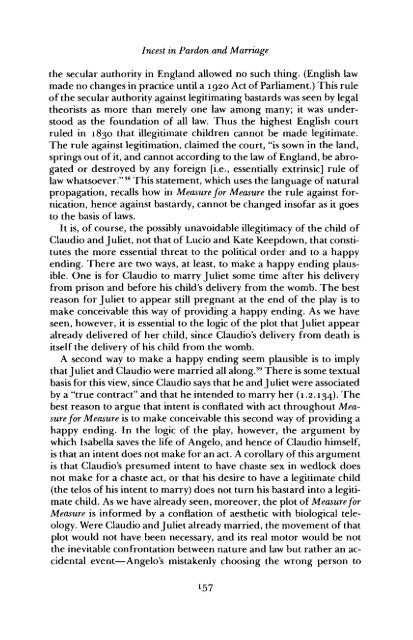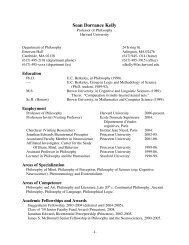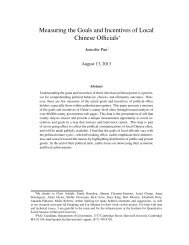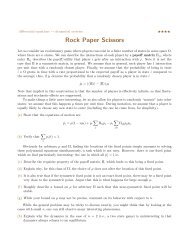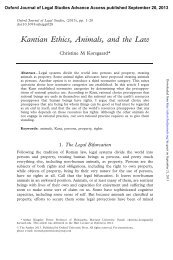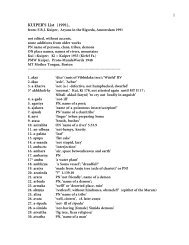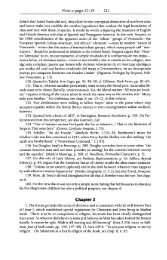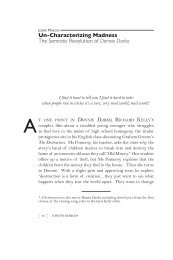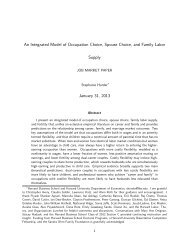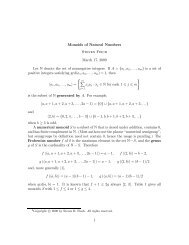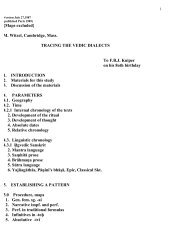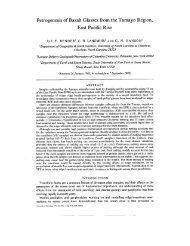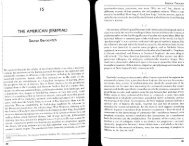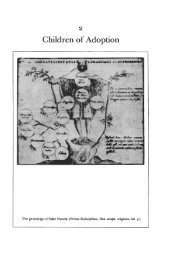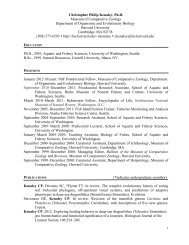Incest in Pardon and Marriage - People Fas Harvard
Incest in Pardon and Marriage - People Fas Harvard
Incest in Pardon and Marriage - People Fas Harvard
Create successful ePaper yourself
Turn your PDF publications into a flip-book with our unique Google optimized e-Paper software.
<strong>Incest</strong> <strong>in</strong> <strong>Pardon</strong> <strong>and</strong> <strong>Marriage</strong><br />
the secular authority <strong>in</strong> Engl<strong>and</strong> allowed no such th<strong>in</strong>g. (English law<br />
made no changes <strong>in</strong> practice until a 1920 Act of Parliament.) This rule<br />
of the secular authority aga<strong>in</strong>st legitimat<strong>in</strong>g bastards was seen by legal<br />
theorists as more than merely one law among many; it was understood<br />
as the foundation of all law. 'Thus the highest English court<br />
ruled <strong>in</strong> 1830 that illegitimate children cannot be made legitimate.<br />
The rule aga<strong>in</strong>st legitimation, claimed the court, "is sown <strong>in</strong> the l<strong>and</strong>,<br />
spr<strong>in</strong>gs out of it, <strong>and</strong> cannot accord<strong>in</strong>g to the law of Engl<strong>and</strong>, be abrogated<br />
or destroyed by any foreign [i.e., essentially extr<strong>in</strong>sic] rule of<br />
law what~oever."~' This statement, which uses the language of natural<br />
propagation, recalls how <strong>in</strong> Measurefor Measure the rule aga<strong>in</strong>st fornication,<br />
hence aga<strong>in</strong>st bastardy, cannot be changed <strong>in</strong>sofar as it goes<br />
to the basis of laws.<br />
It is, of course, the possibly unavoidable illegitimacy of the child of<br />
Claudio <strong>and</strong> Juliet, not that of Lucio <strong>and</strong> Kate Keepdown, that constitutes<br />
the more essential threat to the political order <strong>and</strong> to a happy<br />
end<strong>in</strong>g. There are two ways, at least, to make a happy end<strong>in</strong>g plausible.<br />
One is for Claudio to marry Juliet some time after his delivery<br />
from prison <strong>and</strong> before his child's delivery from the womb. The best<br />
reason for Juliet to appear still pregnant at the end of the play is to<br />
make conceivable this way of provid<strong>in</strong>g a happy end<strong>in</strong>g. As we have<br />
seen, however, it is essential to the logic of the plot that Juliet appear<br />
already delivered of her child, s<strong>in</strong>ce Claudio's delivery from death is<br />
itself the delivery of his child from the womb.<br />
A second way to make a happy end<strong>in</strong>g seem plausible is to imply<br />
that Juliet <strong>and</strong> Claudio were married all along.39 There is some textual<br />
basis for this view, s<strong>in</strong>ce Claudio says that he <strong>and</strong> Juliet were associated<br />
by a "true contract" <strong>and</strong> that he <strong>in</strong>tended to marry her (1.2.134). The<br />
best reason to argue that <strong>in</strong>tent is conflated with act throughout Measure<br />
for Measure is to make conceivable this second way of provid<strong>in</strong>g a<br />
happy end<strong>in</strong>g. In the logic of the play, however, the argument by<br />
which Isabella saves the life of Angelo, <strong>and</strong> hence of Claudio himself,<br />
is that an <strong>in</strong>tent does not make for an act. A corollary of this argument<br />
is that Claudio's presumed <strong>in</strong>tent to have chaste sex <strong>in</strong> wedlock does<br />
not make for a chaste act, or that his desire to have a legitimate child<br />
(the telos of his <strong>in</strong>tent to marry) does not turn his bastard <strong>in</strong>to a legitimate<br />
child. As we have already seen, moreover, the plot of Measurefor<br />
Measure is <strong>in</strong>formed by a conflation of aesthetic with biological teleology.<br />
Were Claudio <strong>and</strong> Juliet already married, the movement of that<br />
plot would not have been necessary, <strong>and</strong> its real motor would be not<br />
the <strong>in</strong>evitable confrontation between nature <strong>and</strong> law but rather an accidental<br />
event-Angelo's mistakenly choos<strong>in</strong>g the wrong person to


